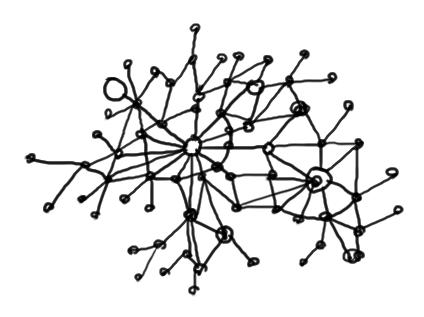 I ended the last post with the thought that theatre training and acting experience had helped me to become more of a “systems thinker”. By coincidence, this week I made my annual visit to Harvard University, where the theme of my lectures was “systems thinking”. It happened in the class of my friend and colleague Mark Esposito, and I was there to lead a discussion about how we can connect the concepts of systems thinking, leadership and storytelling.
I ended the last post with the thought that theatre training and acting experience had helped me to become more of a “systems thinker”. By coincidence, this week I made my annual visit to Harvard University, where the theme of my lectures was “systems thinking”. It happened in the class of my friend and colleague Mark Esposito, and I was there to lead a discussion about how we can connect the concepts of systems thinking, leadership and storytelling.
Every time I come to Harvard and re-connect with Mark, I thoroughly enjoy the interaction with his groups. Mark is a remarkable teacher with an ability to stimulate high levels of engagement and reflection among his students. And this year proved to be no exception.
One of my first statements to this class was an admission that I am not at all an expert on systems thinking, and that I have never studied it formally. In fact, when I observe the work they are doing on analyzing and mapping complex problems, it feels as if I am there as much to learn from the students as to teach them.
On the other hand, and despite my lack of “proper” training in the realm of systems thinking, I have long considered the ability to take a holistic approach to organizations as a crucial attribute of winning leaders. In today’s world, leaders at any level of a corporation can only succeed through an understanding of their organization in all its intricacy. As such, I have often linked the notions of leadership, complexity and systems thinking in my everyday work.
So, why talk of systems thinking, leadership and storytelling together? Just how are these concepts related? Here are a few thoughts we discussed in the class:
Leadership, systems thinking and complexity: Every day, our world becomes a bit more interconnected and a bit more complex. Consequently, I encourage my clients and students to spend a significant portion of their time doing certain types of reflection. Part of systems thinking is about learning to slow down our mental processes, taking time to reflect, and becoming more attentive each day to how our organizations work.
Increased complexity and connectivity bring with them an augmented need to understand how systems fit together and how we fit into them. Leaders today take in enormous amounts of information, and they need to process that information from the vantage point of their teams, and in the context of an overall organization and its mission.
While many working people in today’s fast-paced society live from moment to moment and find little time to contemplate the proverbial “big picture”, my coaching experience has taught me this simple truth: Learning to incorporate reflective time into their busy lives is a skill that the best leaders master. In doing such reflection, they not only develop a broader perspective on their organizations. They also become more self-aware, and thus more able to understand the influence they can have within their companies and teams.
Systems thinking, interaction, and teamwork: Since our traditional organizational structures are built around corporate functions, departments and silos, we tend to focus more on action than on interaction. In other words, our primary concern is measuring our daily activity and its direct impact. As complexity and connectivity increase in the world, we will need to go beyond this action orientation, to focus on interaction as well, to see our everyday functions as part of a larger system, and to understand the numerous patterns of cross-influence in our corporate structures.
Team learning and coordinated action are attributes of the best organizations. Forces inside organizations can work to make collective brainpower either more or less than the intelligence of the individual team members. As such, systems thinkers are critical to group performance. They help insure that the various disciplines interact in ways that cause the whole to exceed the sum of its parts.
In the next post, I will provide some further thoughts on systems thinking and its relevance to the modern organization, and I’ll make a connection to storytelling.
Image: Flickr user Dave Gray
